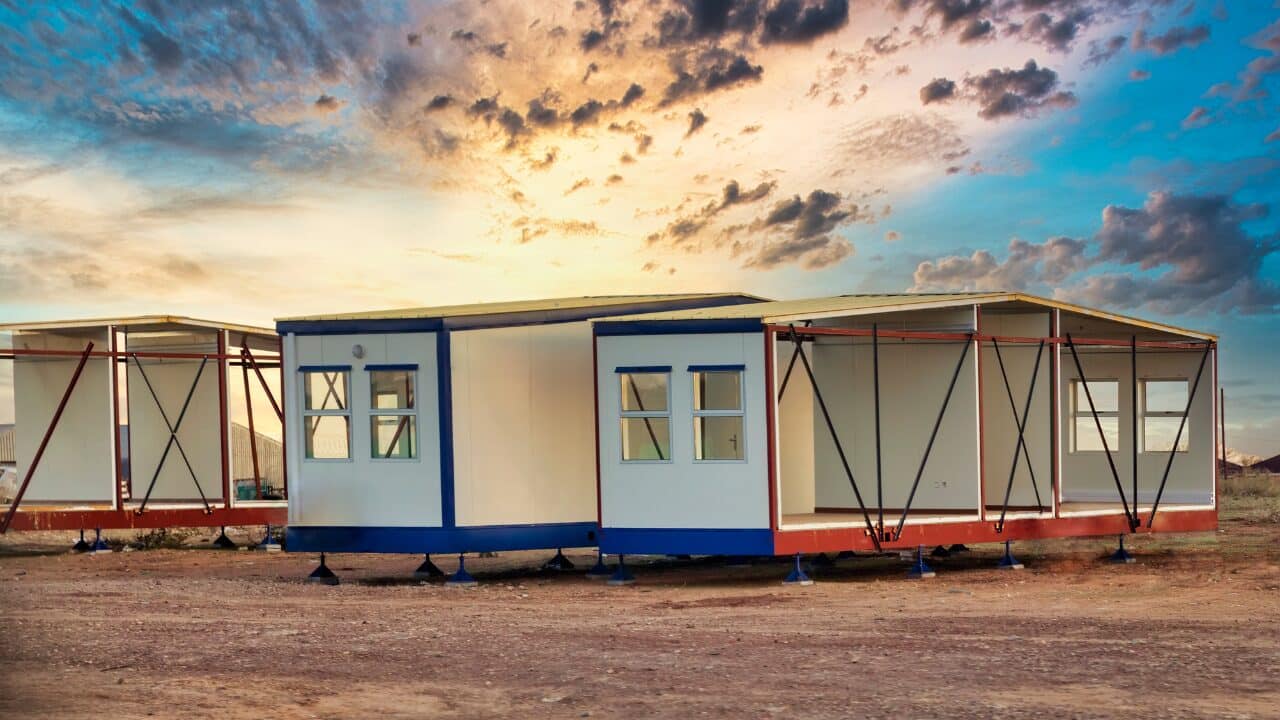UK construction is constantly evolving with new trends and technologies. A key innovation is portable accommodation for workers, which is becoming more popular for its unique benefits over traditional buildings. Here, Bunkabin explains the advantages of portable accommodation for construction projects.
Table of Contents
Cost efficient
Portable cabins for construction workers are cheaper and easier to set up than permanent ones. Because they are made in a factory, the production is not affected by weather or site-based delays, which cuts down on unexpected costs. The transportation to the site and assembly is straightforward, reducing the need for skilled labour and heavy machinery.
Once on site, the costs remain low. The materials used in portable buildings are chosen for both durability and cost-effectiveness, meaning they don’t require frequent repairs or replacements. The design of these buildings is simple yet functional, which makes any maintenance that is needed quick and cheap to carry out.
Additionally, the temporary nature of these structures means there are potential tax benefits to be considered. Portable buildings can often be classified as equipment or rental costs rather than property, which means they are treated differently under tax laws.
Portable buildings are not only more affordable to put in place but also to take down or relocate. If the needs of the site change, these buildings can be moved or adjusted with minimal expense, making them a flexible and economically sound choice for dynamic construction environments.
Reducing carbon emissions
Temporary accommodation can reduce carbon emissions in several ways, which means it can help to reduce a project’s overall carbon footprint. The construction process of portable cabins is designed to be more sustainable than traditional building methods. Since portable accommodation is prefabricated in a controlled factory environment, the process is more efficient, which results in less waste and fewer resources being used.
Furthermore, by allowing workers to stay close to or directly on the construction site, the need for daily commuting is significantly reduced or eliminated. This not only cuts down the cumulative emissions from vehicles but also lessens traffic congestion and the associated pollution.
Portable accommodation is often made from recycled, renewable or sustainably sourced materials. These eco-friendly components are not only better for the environment but are usually more energy efficient, contributing to a reduction in the overall energy consumption of the site.
Additionally, the temporary nature of portable buildings means they can be reused and repurposed for different projects over their lifespans. This reduces the need for new materials and the energy required to produce them, further lowering the carbon footprint. When these structures are no longer needed, many of the materials can be recycled, which reduces the impact of landfills.
Boosting worker punctuality
The proximity of portable accommodation to the construction site is a major factor in enhancing worker punctuality. By providing on-site or nearby living quarters, site managers eliminate the unpredictable variables of daily commutes, such as traffic jams or public transport delays. This not only ensures that workers arrive on time but also helps in starting the workday with less stress and more readiness.
Moreover, when workers have a comfortable and convenient place to stay after their shift, they can get better rest and relaxation. Well-rested workers are more likely to manage their time effectively, maintain consistent work schedules, and be more alert on the job. This improved work-life balance can lead to enhanced performance and efficiency, which are crucial for meeting project deadlines.
The use of portable accommodation also allows for greater flexibility in work shifts. If necessary, workers can easily adjust to different shift patterns to meet the project’s demands without worrying about late-night or early-morning commutes. This flexibility is particularly beneficial in phases of the project that require extended hours or shift work.
Enhancing health and safety
Portable accommodations provide a secure and controlled environment for workers, which is important in an industry where risks are high. These units are equipped with safety features such as fire-resistant materials and secure locks.
The strategic placement of portable accommodation also means that workers have immediate access to rest areas, reducing the risk of fatigue-related accidents. Workers can take regular breaks in comfort, sheltered from harsh weather conditions, which is essential for maintaining alertness and physical wellbeing throughout the workday.
With the addition of facilities like portable showers, workers handling hazardous materials (such as asbestos) can clean off contaminants before they leave the site, preventing the spread of harmful substances and protecting both the workers and the broader community.
Having a comfortable place to rest can also improve mental health. The stress of a construction job can be significant, and knowing there’s a nearby space to relax can ease workers’ minds. This contributes to better mental health, which is just as important as physical safety on the job.
As the construction industry grows, embracing innovative solutions like portable accommodation is essential. Despite misconceptions about the durability and quality of portable cabins, selecting a reputable provider can affirm their superior construction and versatility.





